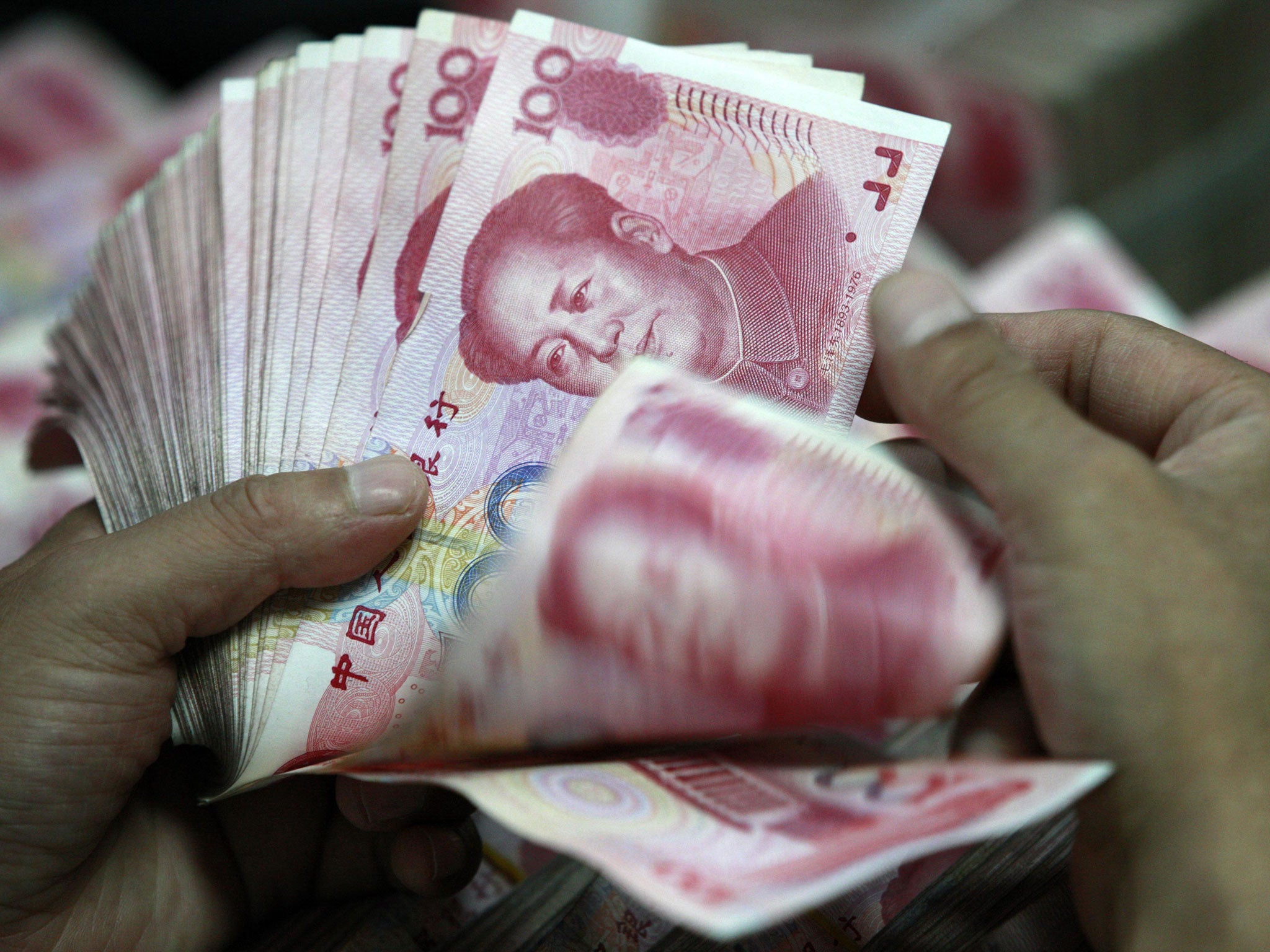China currency devaluation sends global exporters reeling
Beijing slashes value of yuan by 2 per cent against dollar to prop up stuttering domestic economy

China has fired a powerful salvo in the global currency wars with the biggest devaluation of its currency in two decades, in an effort to shore up a spluttering economy.
Beijing’s shock move follows official figures showing a dramatic fall in exports in July – when the performance of China’s manufacturers was the worst it had been in three years.
Policymakers have also grappled with a stock market collapse which forced widespread state intervention to stem the rout. Car sales have slumped and the world’s second-biggest economy is growing at its slowest rate overall since the depths of the financial crisis in 2009.
China’s central bank, which has cut interest rates four times since November to spur growth, slashed the value of the currency by 1.9 per cent against the dollar – the biggest one-day move since the mid-1990s – catching markets completely off guard.
Although free-floating currencies can move far more, the state-controlled yuan is traded in a narrow band versus the greenback, around a value set by China’s central bank.
Moving the marker lower instantly makes Chinese exports cheaper and squeezes a host of multinational giants selling goods to the huge Chinese market – while reducing the risk of politically dangerous manufacturing job losses in the one-party state.
“China now wants a piece of the action in the global currency wars that have seen serial devaluations around the world since the global financial crisis,” John Hardy, head of forex strategy at Saxo Bank, said.
The People’s Bank of China presented the move as a “one-off depreciation” but the intervention comes after leading players including the European Central Bank have embarked on money-printing this year, weakening the euro. The Bank of Japan’s major stimulus last autumn has also depressed the yen.
But the yuan is heavily influenced by the US dollar, which has been strengthening amid rising expectations that the Federal Reserve will raise interest rates for the first time in almost a decade this year.
Swissquote market analyst Arnaud Masset said: “Combined with generally unexpectedly soft economic data, China’s policymakers were required to act decisively. For an economy that remains predominantly export-driven, a weaker currency goes directly to the problem.”
The prospect of Western goods becoming more expensive to Chinese consumers hit the likes of luxury goods firm Burberry, whose sales to China last year accounted for almost 15 per cent of the firm’s £2.5bn global revenues in the year to March. Its shares slid 4.42 per cent leaving it among the FTSE 100’s worst performers. Other upmarket brands including Hermes and LVMH also suffered, as did a host of German car manufacturers including BMW and Volkswagen, for which China is a key market.
London’s legion of listed miners and oil companies were put onto the back foot as the fall in the yuan made dollar-denominated commodities more expensive.
Brent crude oil also dipped below $50 a barrel. “It’s bad news for oil because China will have to pay more for it,” ING commodities analyst Hamza Khan said.
China’s central bank also pledged to give market forces a stronger role in setting the value of the yuan in an attempt to persuade the International Monetary Fund to endorse it as a reserve currency. The IMF has previously seen the lack of market influence on the currency as a reason against granting it reserve status, which would increase its use and boost Beijing’s global clout.
Mr Hardy added: “Exchange rate liberalisation would help China deepen its capital markets and attract foreign capital flows to help finance China’s enormous debt-financing needs at all levels, private and sovereign.”
Subscribe to Independent Premium to bookmark this article
Want to bookmark your favourite articles and stories to read or reference later? Start your Independent Premium subscription today.

Join our commenting forum
Join thought-provoking conversations, follow other Independent readers and see their replies